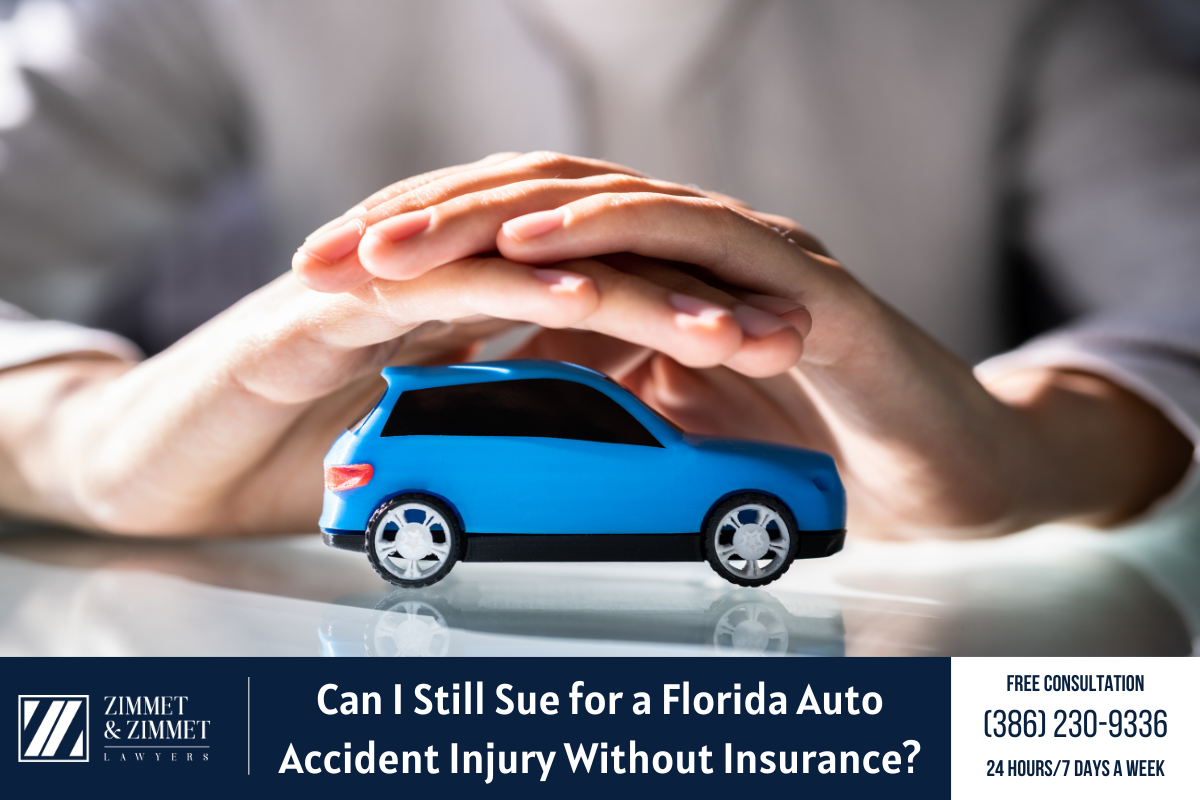
Florida ranks sixth in the country for the state with the most uninsured drivers. These numbers are not only shocking but also somewhat concerning since it means if you are in a car accident, there’s a good chance it will be with an uninsured driver.
If you are the one who is uninsured when an accident occurs, you may be concerned about your options and what the future holds. Usually, car accidents result in damages, which means that even if you don’t have insurance, it’s important to know your options. Using the information here, you can contact a personal injury lawyer from Zimmet & Zimmet for additional help.
Insurance Requirements for Florida Drivers
In Florida, residents have a few driver requirements regarding what will happen after a car accident. An important factor in understanding your rights and responsibilities in these situations is that Florida is a no-fault state. This means that if an accident occurs, both parties are responsible. Each driver (and their passengers) will seek compensation from their insurance first before filing a lawsuit.
Florida auto insurance requirements for drivers include:
- Personal Injury Protection (PIP) coverage of $10,000 minimum
- Property Damage Liability (PDL) coverage of $10,000 minimum
With PIP coverage, you have a simple and easy recourse to recover medical costs you incur after a car accident. PDL helps you pay for damages to the other party if you are determined to be mostly at fault for the accident.
Neither of these insurance options covers compensation for vehicle repairs. If you want to add this to your policy, it’s an option but not mandatory like the other two.
Unfortunately, even though these amounts of auto insurance are required in Florida, not all drivers have it.
Potential Penalties Uninsured Drivers May Face After a Florida Car Accident
If you don’t have the required coverage, you may face several penalties if you cause an accident that results in a serious injury. There is an exception to this. If the accident doesn’t cause injuries, then you may not face penalties; however, it depends on the circumstances.
For a first-time offender, the penalties you may face if you are involved in an accident and uninsured include:
- License plate suspension
- License suspension (this may be lifted once you provide proof of insurance)
- $150 fee to reinstate your license after the suspension
If you are ticketed a second time for not having insurance, you will face more fees. For situations where you are caught more than once driving uninsured in three years, you can lose your license and plates for up to three years or until proof of coverage is provided.
Your Rights to File for Compensation After a Car Accident with No Insurance
While it’s often difficult to file a claim in this situation, a personal injury attorney can review the evidence in your case to determine how you need to move forward and build your case. If you aren’t sure how to move forward, a Florida injury lawyer can help.
If your car accident lawyer believes it is within your rights to file a claim, you must have adequate evidence to prove that another driver caused the accident and your injuries. If the other driver is insured, they may file a claim against you to cover their medical costs and other damages.
As an uninsured motorist, you can potentially sue another driver by filing a personal injury lawsuit against them since Florida is one of 38 no-fault states. Filing a personal injury claim means you experienced harm due to someone else’s negligence. In this situation, it’s necessary to prove that the other person was aware or should have been aware that they did something wrong that could become harmful.
An accident attorney can help gather evidence and build a case on your behalf.
Is It Possible to Purchase Insurance After a Florida Car Accident?
If you don’t have auto insurance, you should purchase it immediately. You can receive a document from the insurance company you choose that states your financial responsibility. Remember, though, if you file a claim for an accident that already occurred, your premiums may go up. You may also be refused coverage since this is called “backdating.”
While this is true, you will now have insurance so that if another accident occurs, you will be prepared to protect yourself.
Steps to Take After an Accident Without Insurance
You can take several steps after a car accident if you don’t have any insurance. The main point is that you must comply with the police and another driver to make the process as simple as possible. You are the one who may face penalties, even if the accident was not your fault.
Stay at the Scene
If you leave the scene, it is called a hit-and-run, a criminal act in Florida. Doing this means that you will face even more legal issues. By staying at the scene, you will avoid these issues.
Contact the Police
You must notify the police in Florida when an accident occurs. Don’t wait to do this. If you plan to hire an auto accident attorney to help you file a lawsuit, you need to have the report they create at the scene.
Get in Touch with a Car Accident Attorney
You should not wait to contact a car wreck attorney after an accident. You need to have legal representation as soon as possible. Getting advice and representation from an experienced attorney will help you navigate through this difficult legal process.
Take Photos of the Accident
The injury attorney you hire will need as much evidence as possible to help you show why you deserve compensation for your injuries and damages. If you can, take photos of the accident scene, damage to your vehicle, and injuries you sustained.
Don’t Wait to Contact a Florida Personal Injury Case for Help with Your Case
You shouldn’t wait to contact an accident injury lawyer from Zimmet & Zimmet to help with your case. Getting in touch with our legal team will ensure we have plenty of time to gather evidence and work to help you secure compensation for your damages and injuries. The first step is to contact our office to schedule a free consultation.
Read More
- What Are the Most Common Car Accident Deaths?
- 5 Tactics the Insurance Companies Use to Get You to Settle
Have you been injured in an accident or fall? Do You have question and want to know your legal options. Call 386-255-6400 for a free consultation and remember there is NO FEE unless WE Win.
